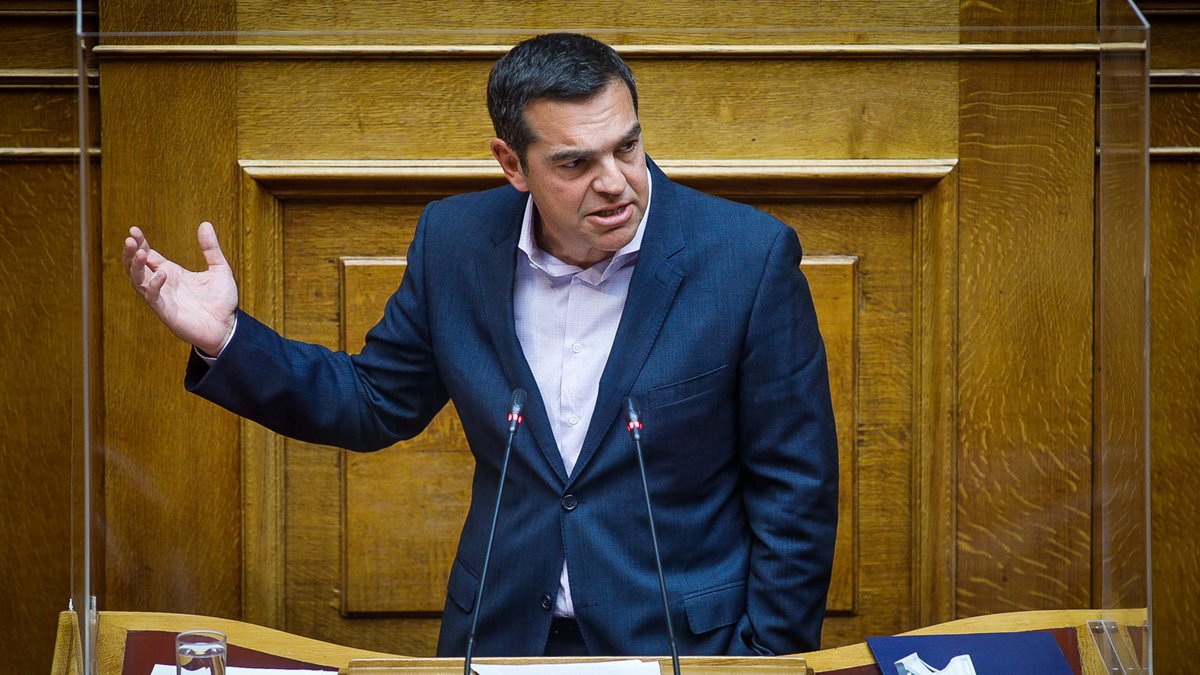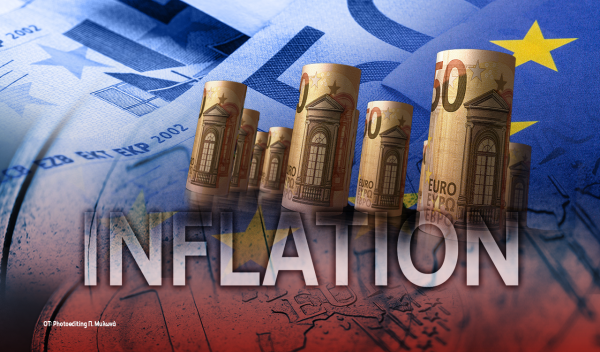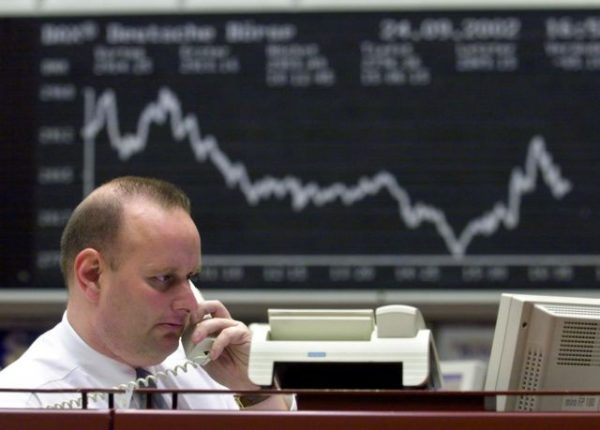
In a renewed attack on the Greek government in an interview with Open TV on Holy Wednesday, the main opposition SYRIZA-Progressive Alliance President, Μr Alexis Tsipras, blamed the Greek Prime Minister, Mr Kyriakos Mitsotakis, for the very high electricity prices in Greece, saying this was a direct result of his policy choices.
“We don’t want money trees; we want to cut down the thievery-trees,” Mr Tsipras said, noting that Greece has had the “highest price per MWh for months now”. He pointed out that the price of power in Greece approached 280 euros, whereas in Spain and Portugal – which had succeeded in uncoupling of power prices from those of natural gas – the price was 112 euros.
“In Greece this is passed on in its entirety to the consumer. Is this the free market? Zero risk for the producer?” Mr Tsipras asked.
The main opposition leader repeated that SYRIZA-PA wants to redress the repercussions of an abrupt phasing out of lignite and the privatisation of the Public Power Corporation (PPC), noting that this would not have any fiscal cost, while he repeated the necessity for a ceiling on wholesale power prices and an intervention in the energy exchange.
Asked to comment on the fact that the energy exchange was introduced under the previous SYRIZA government, Mr Tsipras said that this had been a European directive that all governments were obliged to implement but that, in Greece’s case, this was being done in a “skewed” manner.
“It is murderous for households. It is a criminal policy for Greek society,” he added, while holding the prime minister to account for failing to do anything about what the European Commission had called the “windfall profits” of energy companies, the lion’s share of which went to the PPC.
“They have plundered the pockets of consumers for profits, so that the ‘blue’ golden boys can earn astronomical salaries,” he said.
Latest News

Eurozone Inflation Eases to 2.2% in March
Compared to February, inflation decreased in 16 member states, remained unchanged in one, and rose in ten.

Bank of Greece: Primary Gov. Surplus €4.1b Jan.-March 2025
The data released today by the Bank of Greece revealed that the central government’s overall cash balance recorded a surplus of €1.465 billion in the first quarter of 2025, compared to a deficit of €359 million in the corresponding period of 2024.

Greek Government Reissues 10-Year Bond Auction for €200 Million
The amount to be auctioned will be up to 200 million euros, and the settlement date is set for Friday, April 25, 2025 (T+5)

Greece Defines Continental Shelf Limits and Maritime Zones in Landmark EU Document
The Maritime Spatial Planning (MSP) framework represents a comprehensive approach to spatial planning and is crucial for the successful development of a blue and circular economy

EU Praises Greece’s RRF Progress as Revised Recovery Plan Nears Completion
Athens is preparing to submit its revised “Greece 2.0” Recovery and Resilience Plan after Easter, with a slight delay from the initial timeline but with the European Commission’s approval.

Greek €200M 10Y Bond to be Issued on April 16
The 3.875% fixed-interest-rate bond matures on March 12, 2029, and will be issued in dematerialized form. According to PDMA, the goal of the re-issuance is to meet investor demand and to enhance liquidity in the secondary bond market.

German Ambassador to Greece Talks Ukraine, Rise of Far Right & Tariffs at Delphi Economic Forum X
Commenting on the political developments in his country, the German Ambassador stressed that it was clear the rapid formation of a new government was imperative, as the expectations across Europe showed.

Athens to Return Confiscated License Plates Ahead of Easter Holiday
Cases involving court orders will also be excluded from this measure.

Servicers: How More Properties Could Enter the Greek Market
Buying or renting a home is out of reach for many in Greece. Servicers propose faster processes and incentives to boost property supply and ease the housing crisis.

Greek Easter 2025: Price Hikes on Lamb, Eggs & Sweets
According to the Greek Consumers’ Institute, hosting an Easter dinner for eight now costs approximately €361.95 — an increase of €11 compared to 2024.







![Πλημμύρες: Σημειώθηκαν σε επίπεδα ρεκόρ στην Ευρώπη το 2024 [γράφημα]](https://www.ot.gr/wp-content/uploads/2025/04/FLOOD_HUNGRY-90x90.jpg)

























![Πλημμύρες: Σημειώθηκαν σε επίπεδα ρεκόρ στην Ευρώπη το 2024 [γράφημα]](https://www.ot.gr/wp-content/uploads/2025/04/FLOOD_HUNGRY-600x450.jpg)







 Αριθμός Πιστοποίησης
Αριθμός Πιστοποίησης